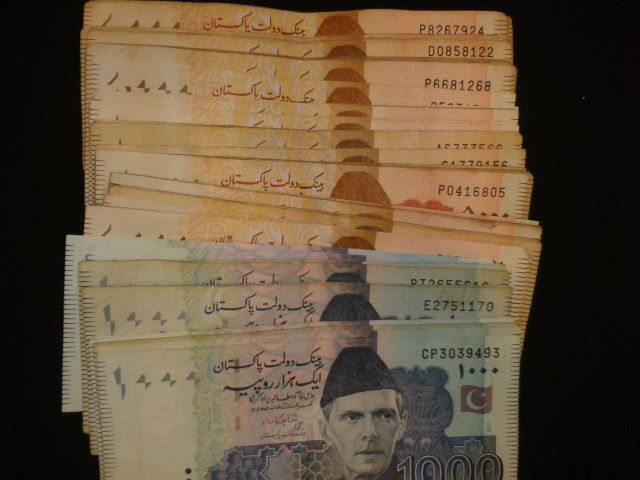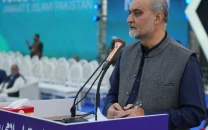Cushioning reserves: Lenders link loans to increase in gas prices
Govt unable to decide admissible level of gas losses finds itself in spot of trouble.

Lenders link loans to increase in gas prices. PHOTO: MARIAM ESSA/EXPRESS
Pakistan’s two chief international lenders have linked approval of $1.5 billion in loans with increase in gas prices from July 2014, heightening woes of the government that remains unable to decide the admissible level of gas losses for fear of court cases.
The reluctance on the part of both, the oil and gas sector regulator and the federal government, to take ownership of setting the permissible limit of Unaccounted for Gas (UFG) – difference between gas purchased by gas utility companies and volume of gas sold to consumers – could further delay the approvals, according to sources in Ministry of Finance.
The World Bank and the Asian Development Bank were expected to approve three loans – each worth $500 million – by December 2013, the sources said.
These credit lines were named Jobs and Growth programme and Power Sector Reforms programme. These loans are aimed at cushioning the foreign currency reserves that are standing at a level not even sufficient to back one-month import bill and providing budgetary support.
The target approval date has been revised to April this year, which is likely to be missed again, if the government fails to issue a notification of increase in gas prices prior to the respective meetings of Board of Directors of the WB and the ADB, the sources added.
The WB’s two loans equal to $1 billion are the cheapest, carrying 0.75% interest rate and having repayment period spanning over 35 years.
Pakistan has still unutilised quota of the cheapest loan, known as the IDA, of $1.7 billion. Out of that the WB has indicated $700 million for Dasu dam. If the remaining amount remains unutilised, it will lapse in June this year, according to the sources.
The WB has tentatively called the Board meeting in first half of May for considering approval but that will depend upon the government’s notification to increase the gas prices, the sources said.
The indecision over the UFG was delaying the determination of the gas prices for the July-December period of 2014 by Oil and Gas Regulatory Authority (Ogra), the sources said.
Ogra has again set the ceiling for the current fiscal year at 4.5%, which the gas utility companies and Ministry of Petroleum were insisting should be revised upward. Fearing meeting the fate of Sadiq, Ogra has asked the government to give policy advice to increase the UFG ceiling.
One per cent (1%) UFG of both the gas utilities translates into a revenue loss of about Rs3.6 billion per year, according to Ogra. It added the UFG benchmarks resulted in saving of Rs59.1 billion to the consumers from fiscal year 2009-10 till recently.
In case of a dispute between the federal government and Ogra, the matter should go to Economic Coordination Committee of the Cabinet for a decision, according to an official of the Ministry of Finance.
Published in The Express Tribune, March 5th, 2014.



















COMMENTS
Comments are moderated and generally will be posted if they are on-topic and not abusive.
For more information, please see our Comments FAQ